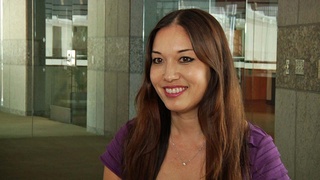Interviews
To be more Japanese than you really are (Spanish)
(Spanish) I think that one of the biggest things is the contribution of professionals to Chilean society as Nikkei. And of course, as Nikkei, I think they still retain some positive influences from Japanese culture, although with each successive generation this gets weaker and weaker. Nevertheless, I think there will always be things like the sense of responsibility, the commitment to doing things well, etc. So from that point of view, it seems to me that being in this position of a Nikkei is contributing quite a bit to…in this case, to our Chile. On the other hand, maybe it’s an acquired characteristic. In general, people tend to think you are more Japanese than you really are. Which means that a lot of times someone sees a lot of the good qualities of a Japanese person and in that sense there’s a sort of respect towards Nikkei because someone thinks that you are very responsible, you’re a real hard worker, even though sometimes it’s not all true. But in general, I think there is that dynamic between Chileans and Nikkei.
Date: October 7, 2005
Location: California, US
Interviewer: Ann Kaneko
Contributed by: Watase Media Arts Center, Japanese American National Museum
Explore More Videos





Postwar school-life
(b. 1930) Half Japanese and grew up in both Japan and the United States.

On Challenging Institutions
(1938-2020) Japanese American attorney and civil rights activist

Pop and Balls
(1938-2020) Japanese American attorney and civil rights activist


Re-examining Identity
(1941-2018) Japanese Canadian photojournalist and activist

Fitting in to both sides of her family
Jewish Japanese American journalist


Culture is an important part of one's identity
Jewish Japanese American journalist



Conflicted about immigrating to America (Japanese)
(b. 1925) War bride
